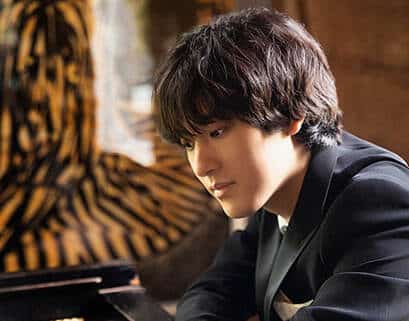Elina Garanca: ‘An opera career today is just ten years’
NewsOne of the most thoughtful artists on the world stage gives an exclusive interview about abuses in the opera world to our Czech editorial partners, Opera Plus.
She accuses company managers and agents of being callous about young voices.
Garanca, who turned 46 this week, says she hates all of her recordings ‘with all my heart’.






Heard her this summer in Salzburg, in concert, Dalila and then Isolde. The feeling was, “I have never heard anything like this.” What she describes here, the care that goes into the preparation, was so perceptible in the singing, and in the embodiment of the roles. It was a privilege to be there. Brava!
I love her recordings.
Alfredo Kraus, Pavarotti and especially Magda Olivero would disagree.
Of course, if you sing the wrong roles too early, you’re lucky if you last two years.
Still, the tragedy of Garanca is that she is a great, cool Latvian mezzo, but fancies herself a Spanish señorita. This has limited the greatness of her art, which she, at times, has achieved.
Vocal performance and longevity may easily be in jeopardy, if the singer is not happy with the existing talent.
It`s not always just other people`s fault. Especially, if you do say “yes”, even when you physically feel that is the wrong answer.
Geez, out of the entire interview (which is great by the way) all you took out of there for your blurb, was her saying she hates her recordings? Nice clickbait.
I will say, she is absolutely right about teachers today who are teaching what they THINK the industry is like while not ever being a working singer. So true.
If she truly “hates all of her recordings”, there is a simple way out. Don’t do any recordings. Glad to be of help.
“Hugo Not So Helpful”. What an a**hole to say. It would be the same as me telling you “People who know you think you’re an a**; Don’t confirm by making stupid postings.” Glad to be of help!
Thanks for your helpful comment. I have published quite a bit in my academic job. It would be stupid to tell the world (not that the world outside my field would care) “I really hate my publications”. If that were the case, I’d simply stop doing them. Same situation here.
Did you actually listen to what she said? Nobody likes listening to their own voice. This was a minor part of a very interesting interview.
I recall Baltsa saying she wouldn’t listen to her own recordings when she was interviewed by the impressario Alan Sievewright in the 80s.
Not sure whether it is a language thing…..but she never said she hates her recordings, rather that she hates recording per se. Prefer life performance vs recorded performance.
She said ‘recordings’ (plural), not ‘recording’.
If you had listened past that moment you would have realized she means her own recordings, it’s clear from the context. And anyway, what sense would it make for anyone to say ‘I generally hate recordings but I love my own’? This is possible only if you hate the recording _process_ but not the results, which isn’t her case, she makes it clear that it is the results she hates (‘they do not give me complement(sic) to my voice’), not the process.
She is not only a fantastic singer, but also a very intelligent person. Avis rara.
Indeed, she is an intellectual singer with a fantastic instrument. That is why expected she would provide depth and refined lyrical beauty.
Still, she approaches even Lieder operatically, with the waiving of the hands. Literally.
Actually, it is devastating to think, what is, or was, lost.
She often creates a most appealingly beautiful, and genuinely moving line, but it remains a moment, not a career.
I adore Garanca, from recordings ! I have never heard her live. Not a quick, cheap and short trip from Iceland.
I suspect most of us can recall hearing a singer who greatly impresses us and we predict great things for and then … crickets. Or the next time you hear them …. “meh.” It’s gone.
Hard to say whether this is really a new thing or not however. The great voices of years past that we still know and admire are generally the ones that lasted, while their contemporaries with the ten year careers are largely invisible and lost to us. To put this in an historic recording collector perspective, we still know and admire the voices on the Victor Red Label 78s. The Black Label 78s? Who ARE these people?
But if there is a “ten year rule” it is sobering to think that Kirsten Flagstad would never have had her Wagner triumphs at the Met; Lauritz Melchior would have had a provincial career — and as a baritone to boot; and Jan Peerce would not have been “Toscanini’s favorite tenor” but rather the un-named and anonymous voice (now of course, unmistakable) on a series of extremely inexpensive 78 rpm records of parlor songs. The common thread to those three: long, long careers AND YET they were far from young when their break finally came
I totally understand her. Why I love her recordings I once heard (and saw) a video of me giving a presentation. Never again. The voice I heard is totally different from what I hear and – no.
Quite a few misunderstandings in this interview, in my opinion.
She confuses lasting of the voice with career length. She is mistaken. What one needs isn’t voice or technique, what one needs is good looks and an agent with connections. Unfortunately not a new development, it’s been like this for decades now. The casting sheets of opera houses are full of vocal has-beens billed at top fees, going on decade after decade. She also confuses the lasting of the voice with the absolute vocal prime of a singer (ten years or so.) A voice can last significantly longer than ten years with little degradation after singers exit their vocal prime, if the singer knows what they’re doing. She is however right that voices can last less than ten years if they sing the wrong repertoire. She is also right that voice teaching is a disgrace these days, with universities and musical conservatories turning out all sorts of ‘scientific’ hacks who never set foot on a stage themselves but presume to teach others how to sing.
She is wrong when she says opera houses in Italy have become larger. Most Italian houses are historical houses with the same capacity they always had. Even the bombed houses reconstructed after the second world war were reconstructed according to old plans. Nor does she herself and her argument ‘it is more difficult to sing today because houses are larger’ any favors when she jumps from this to ‘you sing in Arena di Verona exactly like you’d sing in a regular opera house.’ Arena di Verona opened in 1913 and seats 10,000 easily. Yes, orchestras have become larger, and the tuning is higher. This however had happened long before Ms Garanca was born.
She may appreciate her achievement in Anna Bolena, but in my opinion she doesn’t have the timbre nor the vocal theatricality suitable to Italian opera. Another poster here wrote that she’s of cool temperament but fancies herself a Spanish señorita. This as good a summing up as any.
She may not like her recordings but I’m sure she likes the fees and royalties she gets for them. It it becomes unbearable, there’s a simple cure for this: Stop recording.